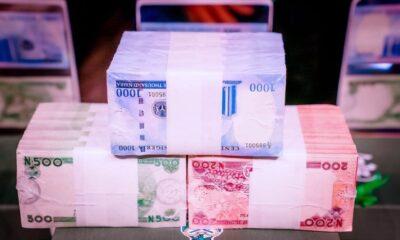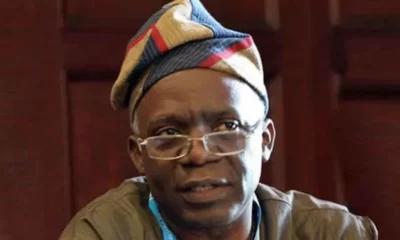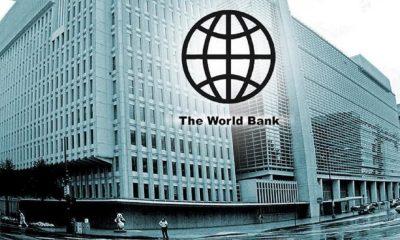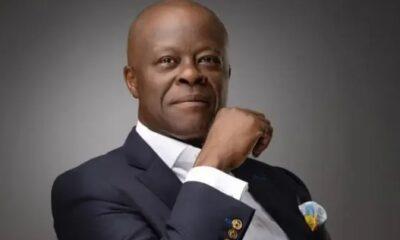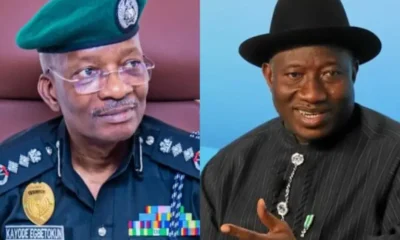Business
World Bank Appoints New President
Published
12 months agoon
By
Editor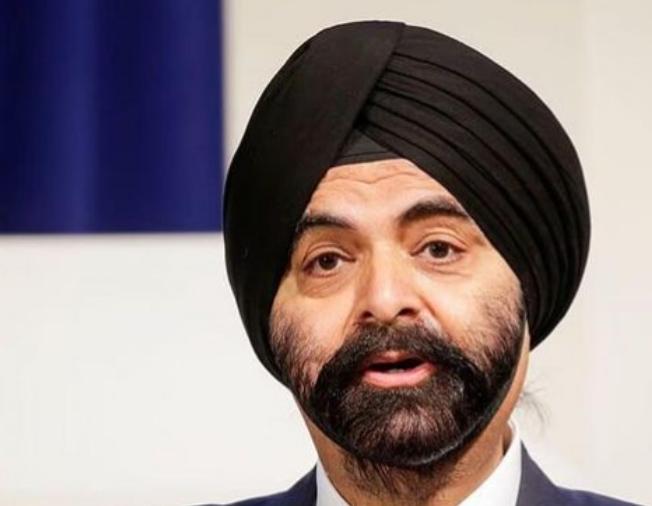
The World Bank confirmed on Wednesday that Ajay Banga would be its next president, handing him the reins at a pivotal time as it looks to reshape its role to better address climate change.
“The Board looks forward to working with Mr. Banga on the World Bank Group Evolution process,” the development lender wrote in a statement published shortly after executives voted to approve his leadership for a five-year term.
The bank said it looked forward to working with Banga on its “ambitions and efforts aimed at tackling the toughest development challenges facing developing countries.”
Banga, the US candidate who was the sole nominee for the top job, will begin his new role on June 2, taking over from David Malpass who is stepping down early amid criticism over his stance on climate issues.
President Joe Biden said in a statement that Banga “will help steer the institution as it evolves and expands to address global challenges that directly affect its core mission of poverty reduction — including climate change.”
READ ALSO: Centre Laments World Bank Report On Nigeria, Demands Freeze On Borrowing
More private sector participation
Under an unwritten arrangement, a US citizen has historically held the presidency of the Washington-based development lender, while the International Monetary Fund has been run by a European.
Despite growing public unease over America’s continued grip on the bank’s presidency from developing and emerging economies, the trend continues with Banga, 63, who was born into a Sikh family in India and is a naturalized US citizen.
Banga previously ran the payments company Mastercard for more than a decade between 2010 and 2021. He has also served on the boards of the American Red Cross, Kraft Foods and Dow Inc.
He told reporters that during his candidacy, he wanted to see greater private sector funding to help tackle financing for global problems.
“There is not enough money without the private sector,” he said, adding that an organization like the World Bank should set up a system that could share risk or mobilize private funds to achieve its goals.
READ ALSO: World Bank Pledges $200m To Repair Ukraine Energy Infrastructure
“These are all tools in the toolkit and I’m going to try and figure it out,” he said.
Treasury Secretary Janet Yellen said Wednesday that “ambitious goals” for the bank would not be met overnight, adding that Washington remains committed to “a staged adoption of reforms over the course of the year.”
Banga’s track record of “forging partnerships between the public sector, private sector, and non-profits uniquely equips him to help mobilise private capital and press for the reforms needed,” she said.
Climate concerns
Banga will enter his new role at a difficult time for the world economy, with slowing global growth and high interest rates in many major economies.
Low-income countries are expected to suffer a double shock from higher borrowing costs and a decline in demand for their exports due to the tough economic conditions, IMF chief Kristalina Georgieva said last month, adding that this could fuel poverty and hunger.
Banga will take control of the bank shortly after member countries endorsed measures to allow it a $50 billion lending boost over the next decade — a key objective of outgoing president Malpass.
READ ALSO: FG Gets $800m World Bank Grant For Subsidy Palliatives
The move is part of an ongoing evolution of the development lender amid pushes for it to meet global challenges like climate change.
The bank estimates that developing countries will need $2.4 trillion every year for the next seven years just to address the costs of climate change, conflict and the pandemic.
While plans to reform the bank have been broadly welcomed, there has been concern by some countries that new objectives could relegate the pressing economic development needs of members in developing economies.
“We want to make sure that the development agenda is not diluted in the climate agenda,” Abdoul Salam Bello, a member of the bank’s executive board representing 23 African countries, told AFP last month.
“Climate is important, but we don’t want to have a trade-off where we have an agenda that will be climate versus development,” he said.
AFP
You may like


Nigeria Set To Receive Fresh $2.2bn World Bank Loan – Edun


VIDEO: Reject IMF, World Bank Offers – Falana Cautions FG


Nigeria’s Poverty Reduced By Seven Per Cent – World Bank


99.9% Households Yet To Receive FG’s Cash Transfer – W’Bank


Economic Reforms: Nigerians Under Poverty Line Rise To 104m — World Bank


World Bank Appoints Finance Minister Wale Edun

The Central Bank of Nigeria (CBN) started fresh and direct sales of US dollars at N1,021 per dollar to Bureau De Change operators.
Nigeria’s apex bank disclosed this in a circular signed by its Director of Trade and Exchange Department Hassan Mahmud.
“We write to inform you of the sale of $10,000 by the Central Bank of Nigeria (CBN) to BDCs at the rate of N1,021/$1. The BDCs are in turn to sell to eligible end users at a spread of NOT MORE THAN 1.5 percent above the purchase price,” the circular posted on its website read.
READ ALSO: Tinubu Unveils African Counter-Terrorism Summit
“ALL eligible BDCs are therefore directed to commence payment of the Naira deposit to the underlisted CBN Naira Deposit Account Numbers from today, Monday, April 22, 2024, and submit confirmation of payment, with other necessary documentations, for disbursement of FX at the respective CBN Branches.”
CBN’s move is coming as the naira is recording a slight depreciation against the dollar after weeks of gains.
In late March, the bank also sold $10,000 to each of the eligible Bureau De Change (BDC) operators in the country at the rate of N1,251/$1.
READ ALSO: Mixed Reactions Trail Video Of Couple’s Customised N200 Notes
Like in the most recent sales, it warned BDCs against breaching terms of the dollar sales, vowing to sanction defaulters “including outright suspension from further participation in the sale”.
The fortunes of the naira have fallen sharply since President Bola Tinubu took over in May. Inflation figures have reached new highs and the cost of living hitting the rooftops.
Nigeria’s currency slid to about N1,900/$ some months ago at the parallel market. But in recent weeks, it has gained against the dollar.
The Nigerian authorities have also doubled down on their crackdown against cryptocurrency platform Binance and illegal BDCs.
On March 1, the CBN revoked the licences of 4,173 BDCs over compliance failures.
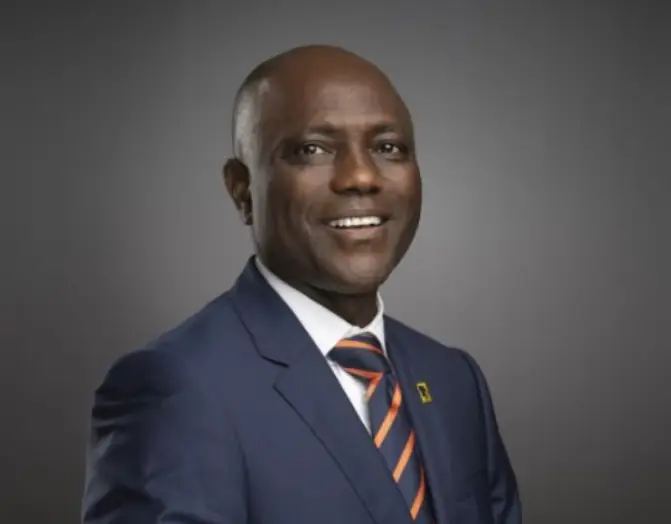
Olusegun Alebiosu has been appointed as the Acting Managing Director/Chief Executive Officer of First Bank of Nigeria Limited (FirstBank Group), effective April 2024.
Alebiosu steps into this pivotal role from his previous position as the Executive Director, Chief Risk Officer, and Executive Compliance Officer, a position he held since January 2022.
Alebiosu brings to the helm of FirstBank over 28 years of extensive experience in the banking and financial services industry. His expertise spans various domains including credit risk management, financial planning and control, corporate and commercial banking, agriculture financing, oil and gas, transportation, and project financing.
READ ALSO: JUST IN: Access Holdings Names New Acting CEO
Having embarked on his professional journey in 1991 with Oceanic Bank Plc. (now EcoBank Plc.), Alebiosu has held several notable positions in esteemed financial institutions.
Prior to joining FirstBank in 2016, he served as Chief Risk Officer at Coronation Merchant Bank Limited, Chief Credit Risk Officer at the African Development Bank Group, and Group Head of Credit Policy & Deputy Chief Credit Risk Officer at United Bank for Africa Plc.
Alebiosu’s academic credentials further enrich his professional profile. He is an alumnus of the Harvard School of Government and holds a Bachelor’s degree in Industrial Relations and Personnel Management. Additionally, he obtained a Master’s degree in International Law and Diplomacy from the University of Lagos, as well as a Master’s degree in Development Studies from the London School of Economics and Political Science.
READ ALSO: Meet Newly Appointed Union Bank CEO
A distinguished member of various professional bodies, including the Institute of Chartered Accountants (FCA), Nigeria Institute of Management (ANIM), and Chartered Institute of Bankers of Nigeria (CIBN), Alebiosu is renowned for his commitment to excellence and ethical practices in the banking sector.
Beyond his professional endeavors, Alebiosu is known for his passion for golf and adventure. He is happily married and a proud parent.
With Alebiosu’s appointment, FirstBank of Nigeria Limited anticipates continued growth and innovation under his leadership, reinforcing its position as a leading financial institution in Nigeria and beyond.
Business
CBN Gives New Directive On Lending In Real Estate
Published
1 week agoon
April 17, 2024By
Editor
The Central Bank of Nigeria, CBN, has released a new regulatory directive to enhance lending to the real sector of the Nigerian economy.
The directive, issued on April 17, 2024, with reference number BSD/DIR/PUB/LAB/017/005 and signed by the Acting Director of Banking Supervision, Adetona Adedeji, signifies a notable shift in the bank’s policy towards a more contractionary approach.
In line with the new measures, the CBN has reduced the loan-to-deposit ratio by 15 percentage points, down to 50 per cent.
This move aligns with the CBN’s current monetary tightening policies and reflects the increase in the Cash Reserve ratio rate for banks.
READ ALSO: JUST IN: CBN Gov Sacks Eight Directors, 32 Others
The LDR is a metric used to evaluate a bank’s liquidity by comparing its total loans to its total deposits over the same period, expressed as a percentage.
An excessively high ratio may indicate insufficient liquidity to meet unexpected fund requirements.
All Deposit Money Banks are now mandated to adhere to this revised LDR.
The CBN has stated that average daily figures will be utilised to gauge compliance with this directive.
Furthermore, while DMBs are encouraged to maintain robust risk management practices in their lending activities, the CBN has committed to continuous monitoring of adherence and will adjust the LDR as necessary based on market developments.
READ ALSO: JUST IN: CBN Increases Interest Rate To 24.75%
Adedeji has called on all banks to acknowledge these modifications and adjust their operations accordingly. He emphasised that this regulatory adjustment is anticipated to significantly influence the banking sector and the wider Nigerian economy.
The circular read in part, “Following a shift in the Bank’s policy stance towards a more contractionary approach, it is crucial to revise the loan-to-deposit ratio policy to conform with the CBN’s ongoing monetary tightening.
“Consequently, the CBN has decided to decrease the LDR by 15 percentage points to 50 per cent, proportionate to the rise in the CRR rate for banks.
“All DMBs must maintain this level, and it is advised that average daily figures will still be applied for compliance assessment.
“While DMBs are urged to sustain strong risk management practices concerning their lending operations, the CBN will persist in monitoring compliance, reviewing market developments, and making necessary adjustments to the LDR. Please be guided accordingly.”
BREAKING: Scores Trapped As Building Collapses In Kano

Bello And Enenche: A Tale Of Two Lions [OPINION]

PHOTOS: FCCPC Raids Supermarkets In Port Harcourt, Seizes Underweight, Re-bagged Rice
Trending

 Entertainment4 days ago
Entertainment4 days agoBridesmaids’ Dance At Wedding Causes Stir On Social Media [VIDEO/PHOTOS]

 Politics5 days ago
Politics5 days agoEdo Guber: Akoko-Edo PDP Leaders Meet In Igara, Describe Ighodalo, Ogie As ‘Perfect Match’

 Metro4 days ago
Metro4 days agoVIDEO: ‘UNN Lecturer’ Caught Pants Down With Married Student

 News2 days ago
News2 days agoDrama! Supporters Of Yahaya Bello Perform Rituals to Prevent His Arrest By EFCC [Video]

 News2 days ago
News2 days agoVIDEO: Force PRO Orders Arrest Officers Caught On Video Bashing Driver’s Car

 Headline3 days ago
Headline3 days agoDrama As Women Fight Dirty, Breasts Fall Out During Spring Break Outing In US [PHOTOS/VIDEO]

 Metro2 days ago
Metro2 days agoEdo Cultists Kill Rival In Daughter’s Presence, Abandon Getaway Car

 News5 days ago
News5 days agoOutrage As Chinese Supermarket In Abuja Denies Nigerians Entry

 Entertainment2 days ago
Entertainment2 days agoNollywood Actor, Zulu Adigwe Is Dead

 News4 days ago
News4 days agoIGP, Jonathan Disagree Over State Police
